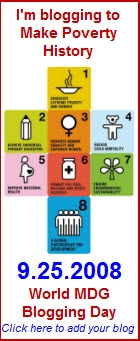This morning I served as supply clergy in another nearby congregation. They were welcoming and gracious - but theres nothing like being supply clergy to remind you just how "local" customs can be! Nevertheless, we celebrated two services (my first Rite I Eucharist - and no, there was no "mea culpa" manual actions on my part) and I had coffee with some lovely people.
And, I preached this sermon. Or some approximation thereof.
Proper 6, Year B - RCL
This summer, my husband and I are living in our first home with a patio, and so we have decided to become amateur gardeners. We wanted to grow basil and tomatoes, so we went to the store and bought plants – and we chose plants that looked like they would do well. The basil plants were already six or eight inches, and we chose a tomato plant that was already sprouting small green fruit. That way – even with our inexperience – we could be fairly certain to have plants with good growing potential, and that wouldn’t take too long for results.
Isn’t that typical of us in American culture? We want things to be fast, and we want them to be reliable. Think of the advertising for computer networks and cell phones – each company trying to convince us that their product has the fastest speeds or the most reliable network. We like safe bets, where the outcome is predictable and in our favor, and we invest in those choices. From the NFL and NBA drafts where teams get to choose the players who will be stars of tomorrow, to public policies that spend extra monies on the already-successful school districts to the stock market fluctuations for the newest “sure-thing” , reliable return on our investments rules the day.
In today’s Gospel, Jesus tells us once again that God’s ways are not our ways. Jesus uses parables to try and explain again that the rule of God is very different from the rules of human society. This time, Jesus proclaims that the reign of God is like the smallest seed that grows into a large shrub. In the kingdom of God – in the places where God’s will is done – the smallest can become great, and the least among us can blossom and flourish.
Jesus could have chosen nearly any plant for this parable – what about acorns growing into great oak trees, or pinecones becoming cedar trees? There are many ways to illustrate the point that even the smallest seed –
the smallest words of kindness, the smallest acts of forgiveness, the smallest demonstrations of God’s grace – the smallest seed can grow into something great. There is great wisdom in learning that even our smallest efforts can flourish, and that our ambition to start out great can sometimes get in the way of actually being great. Plants have a great deal to teach us about the reign of God.
But, Jesus spoke specifically of the mustard seed, and so there must be more to the parable than that. Some of you may be like me, and may not know the difference between a mustard plant and, well, any other kind of plant. Here is what I learned about that this week: mustard plants are weeds. They are not the kind of plant that you try to have around – they have a tendency to take over fields and starve out the other crops. So, the kingdom of God is like a weed that grows into a great bush, so that birds can find rest and shade underneath its branches.
In the kingdom of God, even the weeds have the potential for growth and grace – because God sees potential differently than we do. God views potential differently than we do, because God sees each of us through the eyes of love. In the reign of God, each child of God is valued for who we might be, who God longs for us to be – even though we fail to fully love in return, over and over again.
Just take our story from Samuel! Saul, the perfect-seeming king was not as good as Israel had hoped for. Even the Lord was sorry that Saul had been made king. So, the Lord sends Samuel, and Samuel sets out to anoint the next king as directed by the Lord. He gathers with Jesse and his family, and goes through the “standard” and “likely” candidates, only to find that God has chosen the least likely of the bunch, David, the youngest son. He was such an unlikely choice that he hadn’t even been brought along – he was left at home to tend the sheep! But God chose David as king over Israel. And in David, God got a king who loved the Lord, who wrote beautiful poetry and music - and who committed adultery and murder while leading his people. Yet, despite all of that, God makes a covenant of love with David, and continues to see potential for growth and grace in David and his descendants.
In the kingdom of God, the smallest of us, the least likely to succeed, have the potential to bloom because God’s love makes it so. In God’s reign, seasons of failure do not have to keep us from growing more Christ-like each day. Indeed – since we do not know how the growth happens, who are we to say that it won’t?
The kingdom of God is hope, and so we are called to walk in hope: the hope that growth can happen even when it seems unlikely by the standards of the world, the hope that God is working in us even when we cannot explain it or see it, and the hope that comes from the knowledge that God loves each of us enough to call us into our true potential, failings and all. Amen.
Sunday, June 18, 2006
Subscribe to:
Post Comments (Atom)

No comments:
Post a Comment